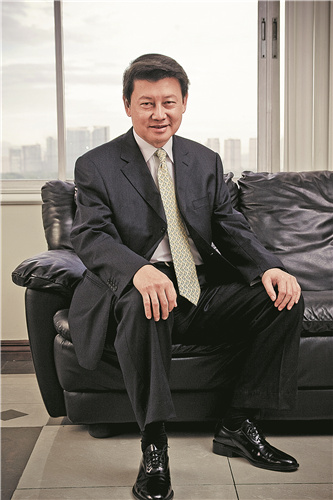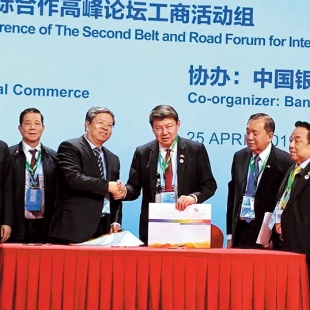China 'contributes to global progress'


Lim also says more can be done with Philippine exports to the Chinese market.
In support of enhancing bilateral trade ties, the federation has participated in the world's biggest import expo hosted by Shanghai in East China every November.
"We want to boost Philippine exports to the world's biggest and increasingly affluent China consumer market," says Lim.
When it comes to tourism cooperation, the Philippines' Department of Tourism's data showed that Chinese tourists spent a total of $2.33 billion in the Philippines in 2019. Further, a total of 1.74 million Chinese tourists visited the Philippines in the same year, up 38.58 percent from 2018.
In his personal capacity, Lim says, his businesses have had positive cooperation with China, especially with his hybrid rice firm SL Agritech Corp, a pioneering hybrid rice seedlings technology company in the Philippines.
The company has benefited from technical cooperation from China and valuable encouragements from China's revered hybrid rice technology pioneer Yuan Longping. SL Agritech has exported hybrid rice to the United States and some countries in the Middle East.
On his journey to establishing SL Agritech Corp in the 1990s, Lim met several Chinese leaders along the way, such as former Chinese premier Zhu Rongji, whom he describes as a "larger-than-life" leader, and former president Hu Jintao.
"I remember premier Zhu giving a speech before businessmen saying that China had only 7 percent of the world's arable lands and 22 percent of the world's population, that high rice productivity had helped food security. I was very inspired by premier Zhu's words, (and) by China's hybrid rice technology led by Yuan," says Lim.
Lim met former president Hu on several occasions in Manila and in Beijing.
"It was an honor also for him to visit a special exhibit of my SL Agritech hybrid rice technology exhibit at Century Park Hotel. This venture to help uplift Philippine rice productivity was inspired by China's hybrid rice pioneer Yuan," says Lim.
In spite of centuries of peaceful trade and many positive socioeconomic contributions by Chinese entrepreneurs in the Philippines, even long before the Spaniards colonized the archipelago, Lim says there are still some "residual misunderstandings and age-old misconceptions".
"I see these unfair ideas as having been rooted mainly in past Western colonial prejudices against the early Chinese traders and migrants, especially the Spanish colonizers," says Lim.
"The good news is, through the past decades, our ethnic Chinese minority and ethnic Chinese entrepreneurs have continuously improved our standing with the rest of Philippine society, gaining acceptance as an integral part of the Filipino nation."
Lim says one example of this continuously improving social acceptance is the federation's role in urging Filipino legislators to declare Chinese New Year as an official holiday in the Philippines.
"This will not only benefit Philippine tourism industry to entice East Asian tourists to vacation in our archipelago, but having this official holiday is recognition that we Filipino citizens of Chinese heritage and culture are fully accepted as part of the Filipino nation," says Lim.
Road to recovery
Seizing the economic momentum was what Duterte's administration has ignited, thanks to his pivot to China.
Lim says he hopes to sustain it through constant and sincere dialogues, frequent communications and high-level contacts to fortify mutual trust and seek out win-win opportunities "where we can mutually benefit and learn from each other".
"President Xi has forged a strong and friendly bond with Philippine President Rodrigo Duterte, strengthening the historical friendly ties between the Philippines and China to unprecedented higher levels," he says.
And it is natural that there are disagreements or misunderstandings between nations. But Lim says, all issues, big or small, can be thrashed out amicably or set aside for future discussions as "trusted friends and partners", like brothers or best friends who also have occasions of disagreements, too.





































